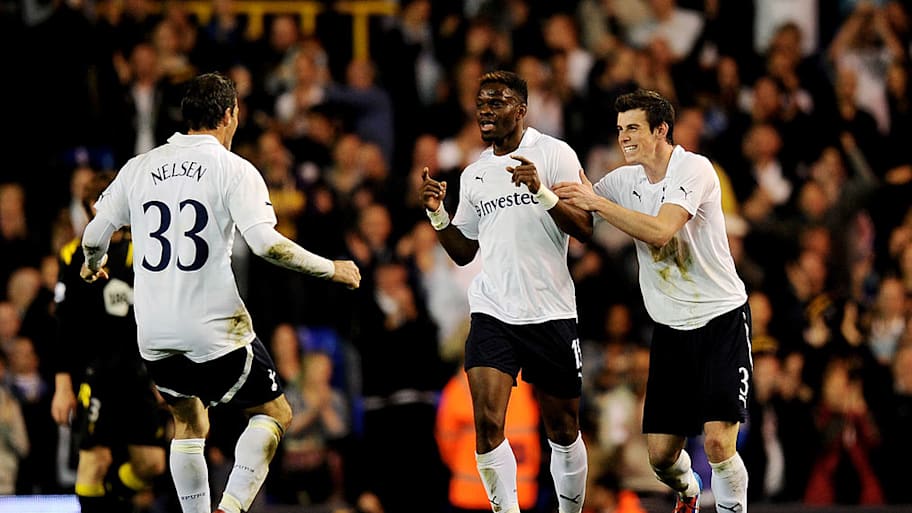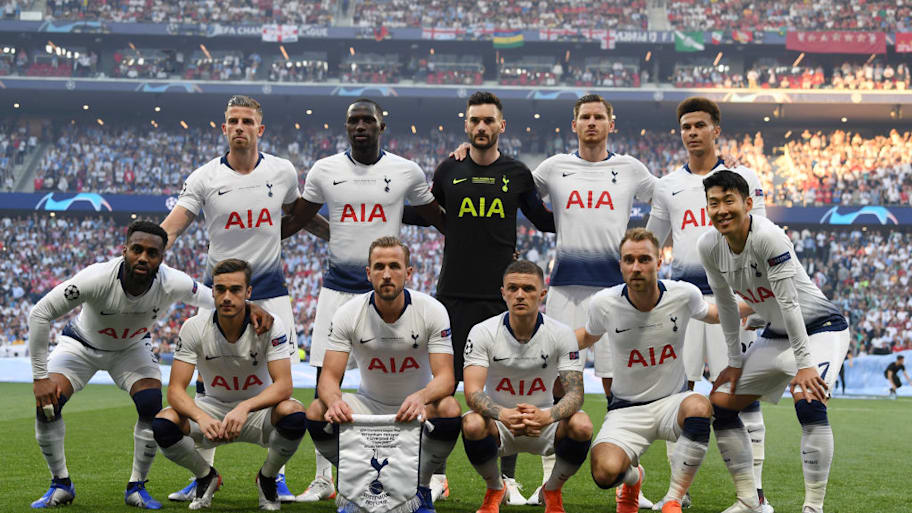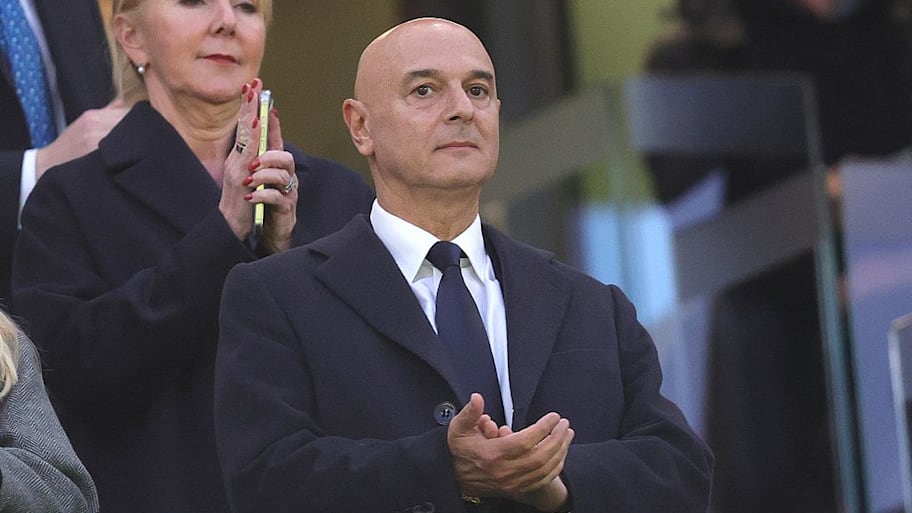Chick King. Beavertown. "We want Levy Out!" These were your three constants of a matchday experience in N17. Oh, and don’t forget the all-or-nothing rush for your train home.
Your opinion of Daniel Levy may well depend on your intimacy with Tottenham Hotspur Football Club. For many match-goers, subjected to the second most expensive season tickets in the Premier League, the now ex-executive chairman was the blood-sucking leech responsible for the club’s failings.
Those further away may look back upon Levy’s quarter-of-a-century at the helm with greater sympathy. Ultimately, he has left Tottenham in a far, far better place compared to when he rocked up alongside the ENIC Group in 2001.
The club was valued at around £80 million ($107.82 million) off the back of former owner Alan Sugar-overseen purgatory, and Levy’s business savvy has helped catapult the Lilywhites into a realm many supporters surely wouldn’t have deemed possible at the turn of the 21st century. In May 2025, Spurs were rated as the ninth most valuable club in the world at £2.6 billion ($3.3 billion) by Forbes, while generating over £500 million ($674 million) in annual revenue.
Even the most ardent of ’Levy outers’ will commend the 63-year-old’s off-field work, but for so many, that’s where the appreciation abruptly ends.
After 25 years in charge, Daniel Levy has left Tottenham Hotspur. pic.twitter.com/DLtnlla8WZ
— Sports Illustrated FC (@SI_FootballClub) September 4, 2025
“If it hadn’t been for the football, Daniel Levy would be regarded as one of the great club executives,” Jonathan Wilson aptly summarises in his recent column for The Guardian.
There’s a distinct line to be drawn between Levy the businessman and Levy the football operator. The former’s brilliance cannot be denied, but the latter’s incompetence so often came to the fore.
During his near-25 years of leadership, Tottenham lifted just two pieces of silverware, including last season’s Europa League, which means Levy will feel as if he’s exiting on a high note. While their financial stability aided capacity to compete towards the top of the Premier League and gently emerge at Europe’s top table, even for a brief period, there was a sense that the chairman’s frugality and penchant for self-sufficiency was capping the heights the Lilywhites could ascend to.
Only six clubs boast a greater net spend in European football since ENIC took over, per Transfermarkt, and Levy entered the fray. Pulling his finger out once transfer season rolled around, in general, was never an issue. However, despite the club’s grand infrastructure, the chairman’s strict wage structure often limited Tottenham to burgeoning talent as opposed to the finished article.
There was a sense that Levy failed to seize upon the most successful periods of his tenure. Midway through the 2011–12 season, a mightily exciting Spurs outfit led by Harry Redknapp were gunning for the Premier League title. The January window was the time for Levy to deliver Redknapp the extra quality burst that was required for Spurs, without a league title since 1961, to kick on and compete fiercely with the Manchester clubs.

Prolific La Liga strikers Álvaro Negredo, Fernando Llorente and Giuseppe Rossi were mooted as possibilities, but they wound up with a past-it Louis Saha. To compensate William Gallas’s long-term injury, veteran defender Ryan Nelsen was signed to provide mitigation. They finished fourth, but missed out on Champions League football due to Chelsea’s unthinkable triumph in Munich.
18 months later, the Gareth Bale money came and went with only Christian Eriksen and, to a lesser extent, Erik Lamela, establishing themselves as long-term contributors out of seven new arrivals. The pair would play pivotal roles during the next exciting new dawn in N17, when Mauricio Pochettino rocked up and galvanised a club that was starting to drift.
However, some would argue that Poch’s success came in spite of the chairman. Levy’s grand stadium plans coincided with the peak of that scintillating team, one that ended the final season at White Hart Lane unbeaten in the Premier League. They were forced to play almost two full campaigns at Wembley, and the debt that would inevitably accrue from the chairman’s infrastructural utopia meant there was an absence of squad bolstering, especially in the summer of 2018, when no players were signed at all.
Pochettino’s team peaked in 2016–17, but would enjoy one last hurrah in the form of a miraculous journey to the 2019 Champions League final. Defeat to Liverpool ensued in Madrid, and a painful conclusion to a wonderful but ultimately trophy-less period followed soon after.

Levy sympathisers would suggest that it wasn’t the chairman who picked Son Heung-min at left wing back for the 2017 FA Cup semi-final, nor Michel Vorm over Hugo Lloris in goal at the same stage of the competition the following year. Perhaps Lucas Moura, the hero in Amsterdam, should’ve started at the Metropolitano in 2019.
Ultimately, Spurs perpetuated their tag of ‘nearly men’ with Pochettino at the helm, and those most frustrated at the time would point the finger at the Argentine, too. He was disparaging of cup success and an advocate of league position, an attitude reflective of Levy’s perceived financial prioritisation.
Erroneous ambition was shown post-Poch, with Levy’s desire for instant gratification setting the club back. Big-name managers arrived in N17 thinking they were too big for the role they inherited, with José Mourinho and Antonio Conte departing after fleeting highs but, crucially, no trophies.
Ange Postecoglou was the not-so-unlucky 13th manager of Levy’s tenure, and the idealistic Australian found a way of uniting a fanbase growing in disillusionment. A pragmatic touch in Europe ensured Ange delivered on his second season promise, as Spurs won the Europa League in Bilbao.
Daniel Levy has broken his silence on Ange Postecoglou's sacking, saying winning the Europa League isn't enough... 👀🏆 pic.twitter.com/kDD6S48iCd
— Sky Sports Premier League (@SkySportsPL) June 18, 2025
Allowing the emotion of that night to sap away, Levy ruthlessly parted ways with Postecoglou two weeks after the 1–0 victory over Manchester United. However, the executive chairman has also succumbed as part of the major hierarchical shake-up overseen by ENIC. Ultimately, the top brass may have attributed the club’s worst league campaign in almost 50 years to Levy, too.
It’s a seismic moment in Tottenham’s modern history, and the majority are celebrating the news as if it’s the fall of an authoritarian figure. Nevertheless, it’s the foundations installed by Levy which mean Spurs are a supergiant waiting to explode—for better or worse.
The grass might not be greener in a post-Levy world, and perhaps the extent of their success in the years that follow will come to define the long-time chairman’s rather conflicting legacy in N17.
READ THE LATEST SOCCER NEWS, TRANSFER RUMORS AND MATCH REACTION
This article was originally published on www.si.com as Daniel Levy Departs Tottenham With a Conflicting Legacy.
